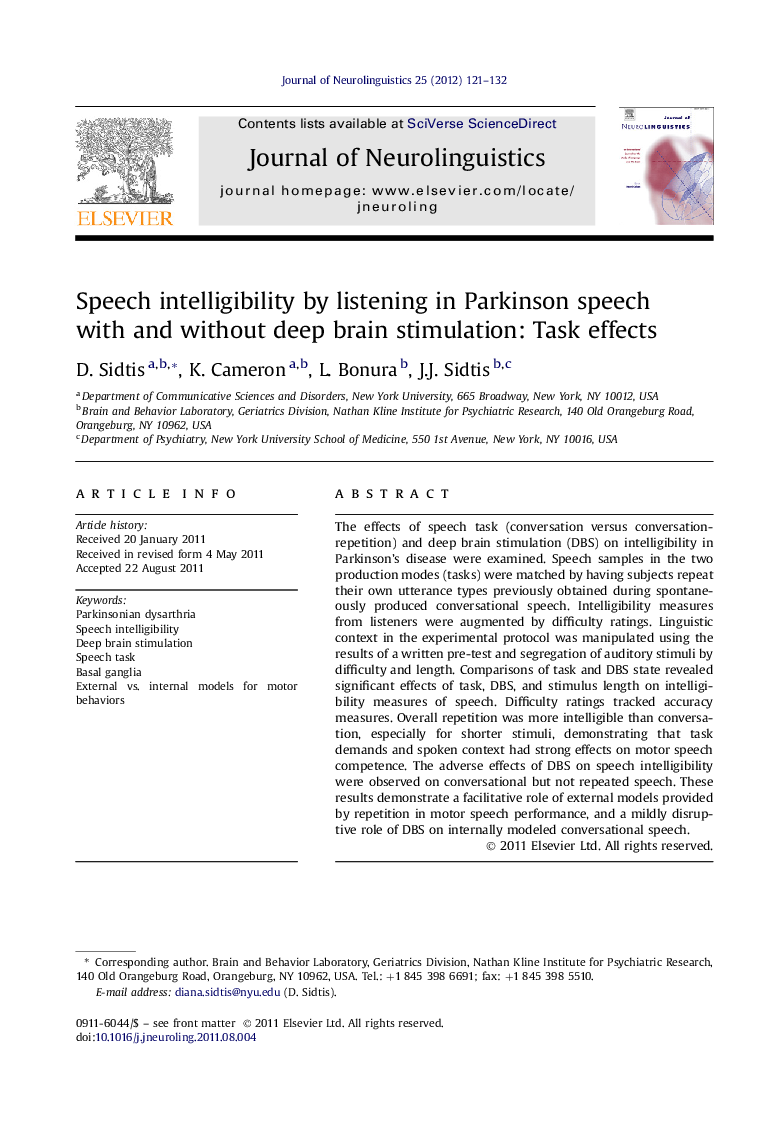| Article ID | Journal | Published Year | Pages | File Type |
|---|---|---|---|---|
| 911891 | Journal of Neurolinguistics | 2012 | 12 Pages |
The effects of speech task (conversation versus conversation-repetition) and deep brain stimulation (DBS) on intelligibility in Parkinson’s disease were examined. Speech samples in the two production modes (tasks) were matched by having subjects repeat their own utterance types previously obtained during spontaneously produced conversational speech. Intelligibility measures from listeners were augmented by difficulty ratings. Linguistic context in the experimental protocol was manipulated using the results of a written pre-test and segregation of auditory stimuli by difficulty and length. Comparisons of task and DBS state revealed significant effects of task, DBS, and stimulus length on intelligibility measures of speech. Difficulty ratings tracked accuracy measures. Overall repetition was more intelligible than conversation, especially for shorter stimuli, demonstrating that task demands and spoken context had strong effects on motor speech competence. The adverse effects of DBS on speech intelligibility were observed on conversational but not repeated speech. These results demonstrate a facilitative role of external models provided by repetition in motor speech performance, and a mildly disruptive role of DBS on internally modeled conversational speech.
► Hypokinetic dysarthria in Parkinson’s disease has reduced intelligibility. ► Speech intelligibility measures must control for linguistic variables. ► Deep brain treatment (DBS) for Parkinson’s disease affects speech in various ways. ► Speech task (conversation or repetition) affects speech intelligibility. ► Task, DBS ON state, and duration of stimuli affected intelligibility of Parkinsonian speech.
